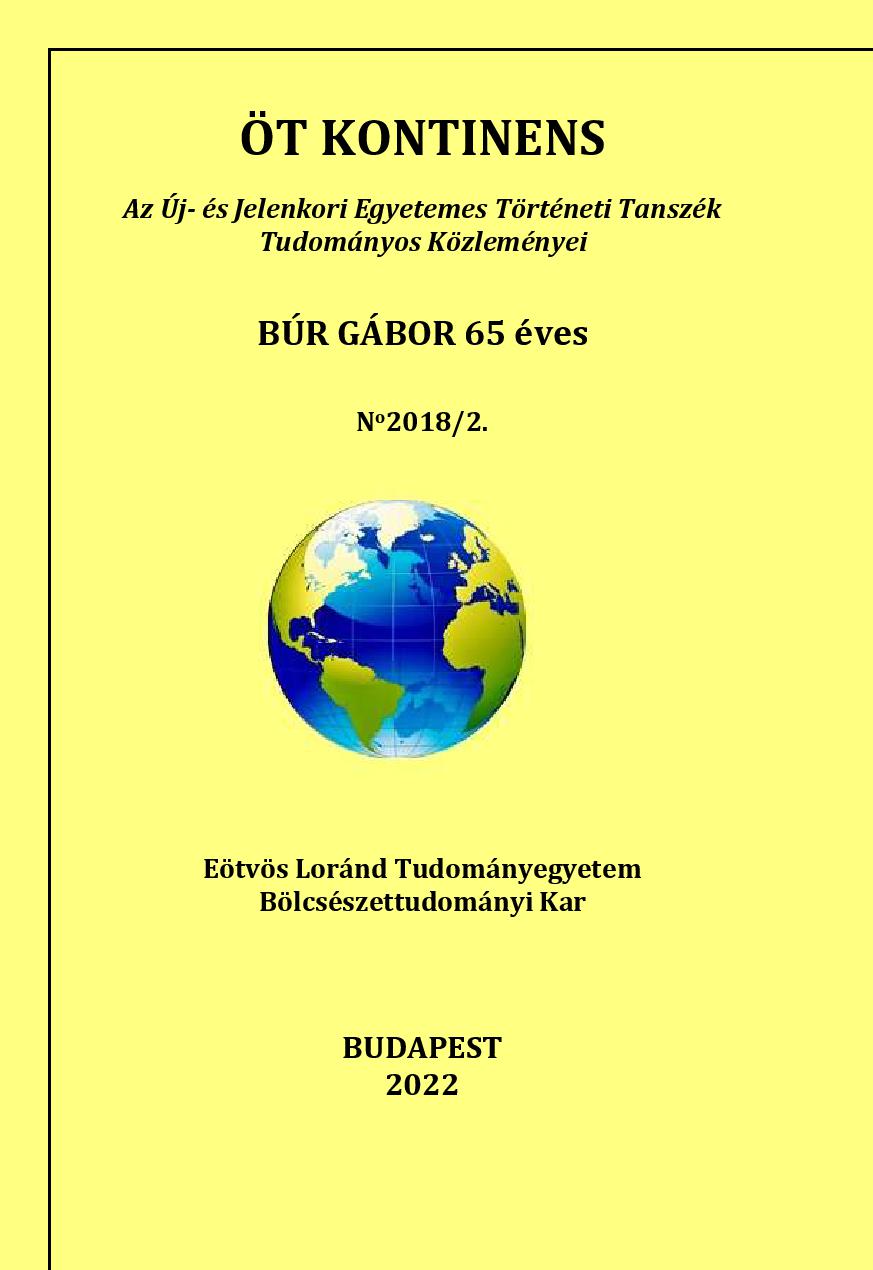A Habsburg Birodalom és a „korszerűtlenség”
The Habsburg Empire and „untimeliness”
Author(s): Imre TarafásSubject(s): Cultural history, Comparative history, Social history, 19th Century, Post-War period (1950 - 1989), Politics and Identity
Published by: Eötvös Loránd Tudományegyetem, Új-és Jelenkori Egyetemes Történeti Tanszék
Keywords: Habsburg Empire; culture; third space; postcolonialism; adaptation;
Summary/Abstract: The article presents major historiographical perceptions of the Habsburg Empire: the so-called „classical” thesis, according to which the Empire was an anachronistic, artificial construct condemned to destruction, and the more recent approach by such scholars as Pieter M. Judson, who re-evaluate the role that national identity played in the empire’s life and argue that the empire was in fact more viable than historians had thought before. Furthermore, the article compares the major concepts of the new trend with those of Moritz Csáky, whose immense work concentrates on culture, a field that the major scholars of the new trend tend to ignore. The article argues that with his impressive theoretical knowledge, Csáky manages to offer a concept of culture that surpasses the traditional essentialist interpretation of the notion, providing new framework for interpreting cultural frontiers, transfers and adaptation in the empire. Finally, the author offers a case study which demonstrates the merits of Csáky’s approach. In conclusion, the article emphasizes the importance of examining cultural interactions and transfers for a better understanding of the empire and of the lessons that its history can provide for us.
Journal: ÖT KONTINENS
- Issue Year: 2018
- Issue No: 2
- Page Range: 309-324
- Page Count: 16
- Language: Hungarian

